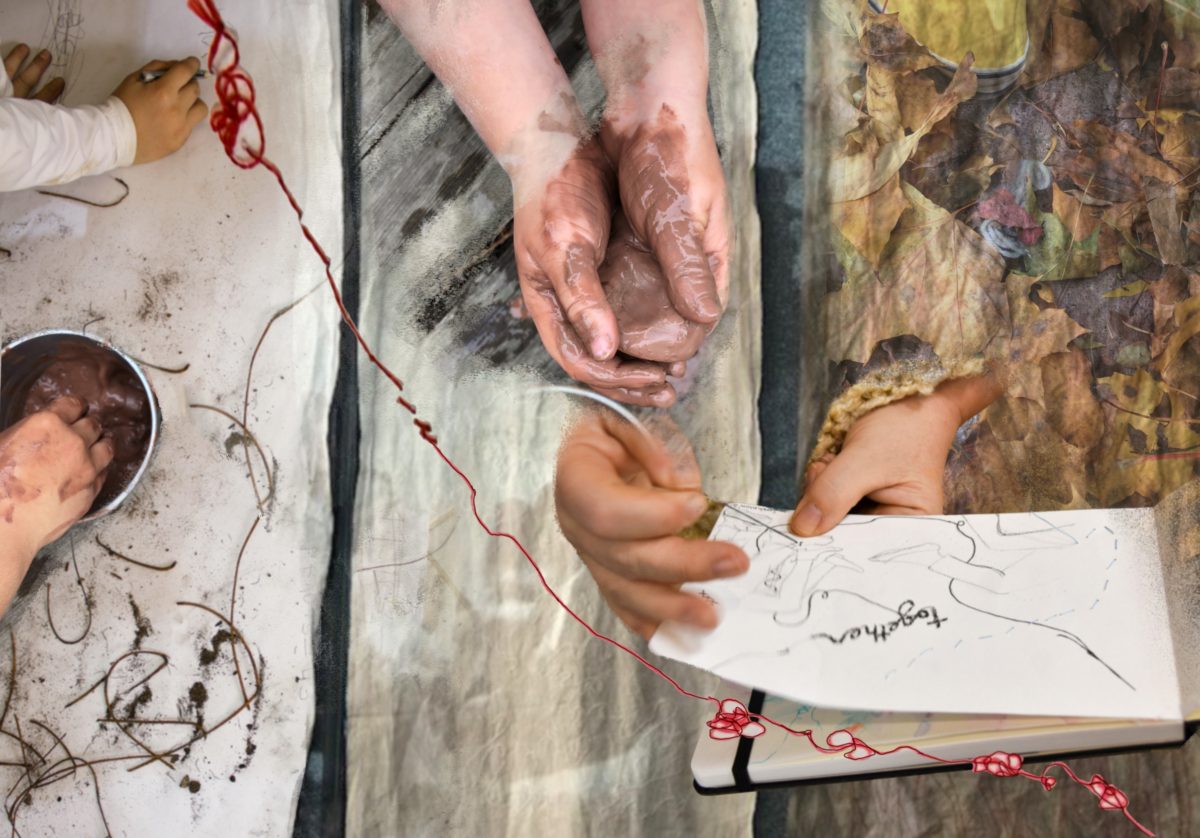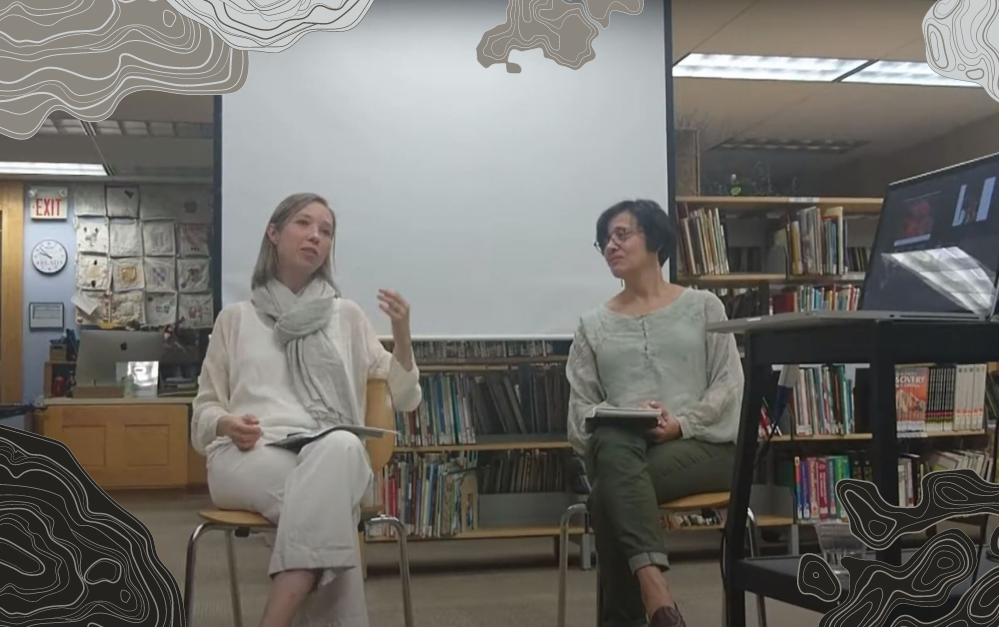We hope that this magazine intersects with pedagogists’ ongoing conversations and situated experiences by highlighting their pedagogical trajectories and inventiveness.
This magazine serves as a living archive of the emergent and generative work that takes place in the encounter between pedagogy and early childhood education as we know it. In this issue, we wonder: What possibilities will be realized? What shifts might emerge? And how might we follow pedagogical inventiveness and its demand to think beyond what we already know?
We made the decision to share our work through a magazine in order to be accountable to a digital form that is public, speculative, rooted in a particular context and commitment, and that is continually on the move. Refusing our website content to relax into staunch stability, we want to create something unfamiliar (a magazine? A knot? A landing site? A confrontation? Something yet to be knowable?) that demands work and return as modes of engagement. While the Pedagogist Network of Ontario (PNO) Magazine will be organized into issues, we want to cultivate novelty and strangeness beyond only the moment of launching a new issue. As the work of a pedagogist demands, we hope readers will linger with and retrace their encounters with each piece. We encourage readers to share articles through different social media pathways.
We hope that the magazine will keep traces of complicated pedagogical work, and that these traces will become part of a broader memory that is presently emerging and is nourished through the multiple situations, projects, events and artifacts. We hope the magazine becomes a manifestation of pedagogists’ situated and collective work. In this way, the magazine is both historical and prospective.
The works we share in this magazine enact an ethical commitment to the inventive, risky, courageous labour of theorizing and enacting the work of a pedagogist. We invite readers to attend to the rich temporal complexities of doing pedagogical work as a pedagogist in Canada.
In this first issue of the PNO Magazine, we open with a conversation between Veronica Pacini-Ketchabaw and Cristina Delgado Vintimilla. They discuss the pedagogists’ practice as the work of creating conditions to think otherwise futures in early childhood education. In our inaugural Pedagogist Conversations section, PNO pedagogist Ann Wilke shares a provocation with the intricate question ‘what matters for thinking pedagogically amid an ongoing COVID-19 pandemic?’. Finally, we offer two previously published essays: What is Pedagogy? (by Cristina Delgado Vintimilla) and What Would be Possible if Education Subtracts Itself from Developmentalism (by Cristina Delgado Vintimilla, Nicole Land, Kathleen Kummen, Veronica Pacini-Ketchabaw, and Randa Khattar).
The PNO Magazine articles are demanding and anticipatory. They asks of us something beyond cutting and pasting, skimming and forwarding. Invention, response, participation, and answerability matter as each piece offers forward possibilities for us to grapple with in early childhood education. that needs re-envisioning. As readers sink into the articles’ complexities and provocations, we hope we might begin to weave an embodied and inventive vocabulary for thinking pedagogically in Canada – that is, a vocabulary that nourishes and is nourished by ongoing pedagogical conversations.
We look forward to thinking together.
Cristina Delgado Vintimilla, Nicole Land, Veronica Pacini-Ketchabaw, Randa Khattar, Kathleen Kummen, and Fikile Nxumalo
When sharing this piece, please include the following citation: Delgado, C.V., & Land, N. (December 2020). Editor’s note. Pedagogist Network of Ontario Magazine, 1(1). Retrieved from https://pedagogistnetworkontario.com/editorial/


